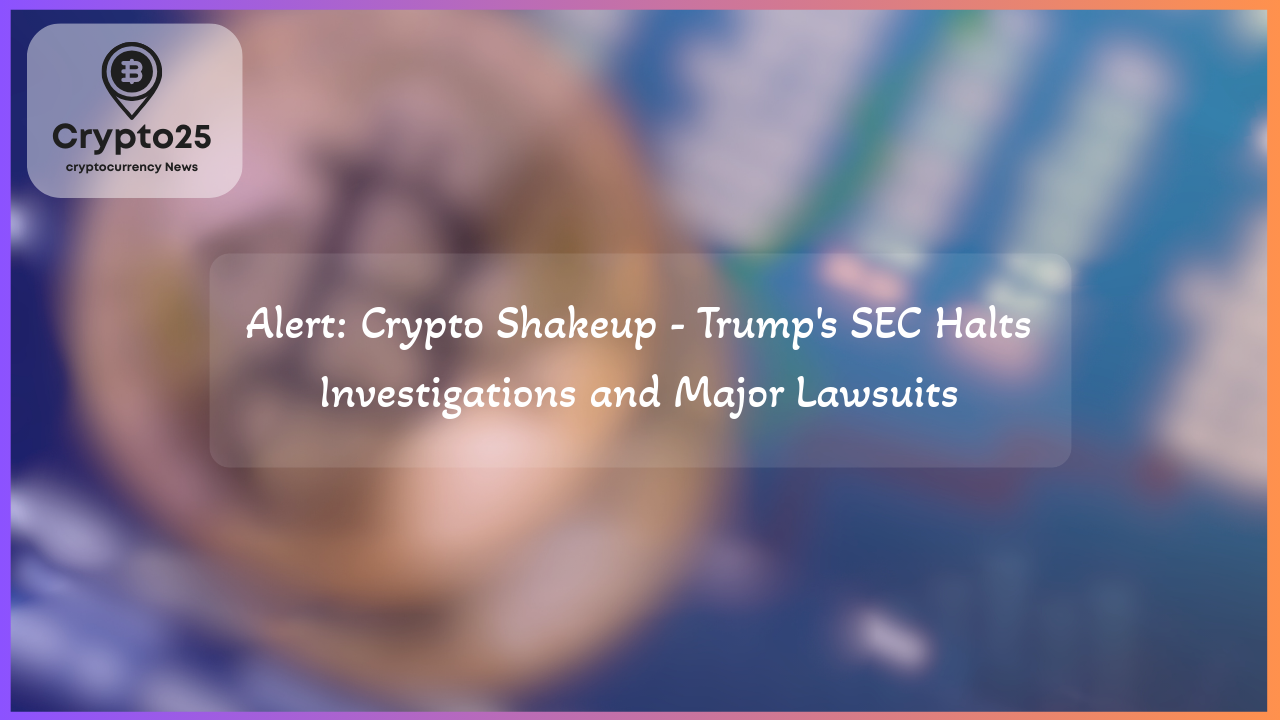
As the regulatory tides shift in the U.S., the crypto industry is witnessing unprecedented developments as top firms and protocols face pivotal moments with the Securities and Exchange Commission (SEC). Under evolving leadership, the SEC has been revisiting its stance on blockchain technologies, leading to the resolution of landmark cases. This reflects an ongoing trend of regulatory recalibration toward innovation in the decentralized financial ecosystem.
### SEC’s Evolving Approach to Crypto Regulation
In recent months, the SEC has taken notable steps to reassess its historically stringent regulatory strategy toward blockchain firms. Crypto giants like Binance, Coinbase, and Uniswap Labs have found themselves at the forefront of a more conciliatory approach. Binance, for instance, secured a temporary pause in its ongoing legal battle with the SEC, signaling a move towards negotiation. Similarly, other entities — including Ripple and Kraken — have noted progress in resolving disputes previously centered around allegations of securities law violations.
For the DeFi community, this marks a significant shift. The SEC’s decision to abandon its appeal against DeFi protocols clarifies that such platforms are not to be regulated as traditional securities exchanges. This change ensures that innovative frameworks like decentralized exchanges (DEXs) and liquidity pools can operate without overreaching restrictions.
| Recent Case | Status or Outcome |
|---|---|
| Ripple vs SEC | Resolution in negotiation post joint filing |
| Binance Investigations | 60-day pause for reconsideration |
| DeFi Lawsuit Appeal | Voluntarily dropped by the SEC |
### Major Wins for Crypto Giants
Several high-profile cases have recently concluded in favor of crypto firms, highlighting the SEC’s recalibration. Coinbase, for example, saw the dismissal of a lawsuit accusing it of operating as an unregistered securities exchange. This decision was regarded not just as a victory for the company but as a signal for a shift in regulatory priorities. Similarly, NFT marketplace OpenSea and Ethereum-based developer Consensys successfully closed investigations without enforcement actions, further indicating a softening regulatory stance.
Ripple’s protracted legal battle over the classification of XRP tokens reached a turning point when the regulator chose to pursue a negotiated resolution rather than fighting its appeal. This case, initially launched in 2021, has been viewed as a bellwether for the broader crypto community. Ripple CEO Brad Garlinghouse called the development a “victory” for the industry and a pushback against enforcement-heavy tactics.
The SEC also dropped investigations into organizations like Uniswap Labs, Immutable, and even prominent influencers linked to cryptocurrency projects, such as the “Hawk Tuah” meme coin debacle. As blockchain entrepreneurs celebrate these regulatory retractions, these events highlight a potential end to regulatory overreach while inviting legislative clarity.
### A Future Defined by Collaboration and Legal Certainty
Looking ahead, the crypto sector appears to be navigating toward a new era marked by collaboration between innovators and regulators. The SEC dismissing allegations against firms like Crypto.com and Robinhood Crypto sends a clear message that cooperative discussions could yield better outcomes than drawn-out enforcement actions.
The long-standing cloud of uncertainty surrounding digital assets and DeFi protocols may lift as the SEC moves to establish clearer guidelines for the industry. Veteran crypto organizations like Horizen Labs and Helium have echoed sentiments of hope as they welcome regulatory progress and continue innovating without fear of punitive measures. Importantly, decentralized finance companies anticipate clearer regulation that aligns with the unique decentralized ethos of blockchain technology.
In conclusion, the unfolding developments between the SEC and the crypto industry signal the dawn of a promising phase for blockchain and digital assets. By shifting away from rigid enforcement policies to fostering dialogue, regulators have an opportunity to create a balanced framework that promotes both compliance and innovation. As industries across the globe await the outcomes of major cases and reforms, this transitional period in the U.S. could reshape the global landscape of cryptocurrency regulation.
